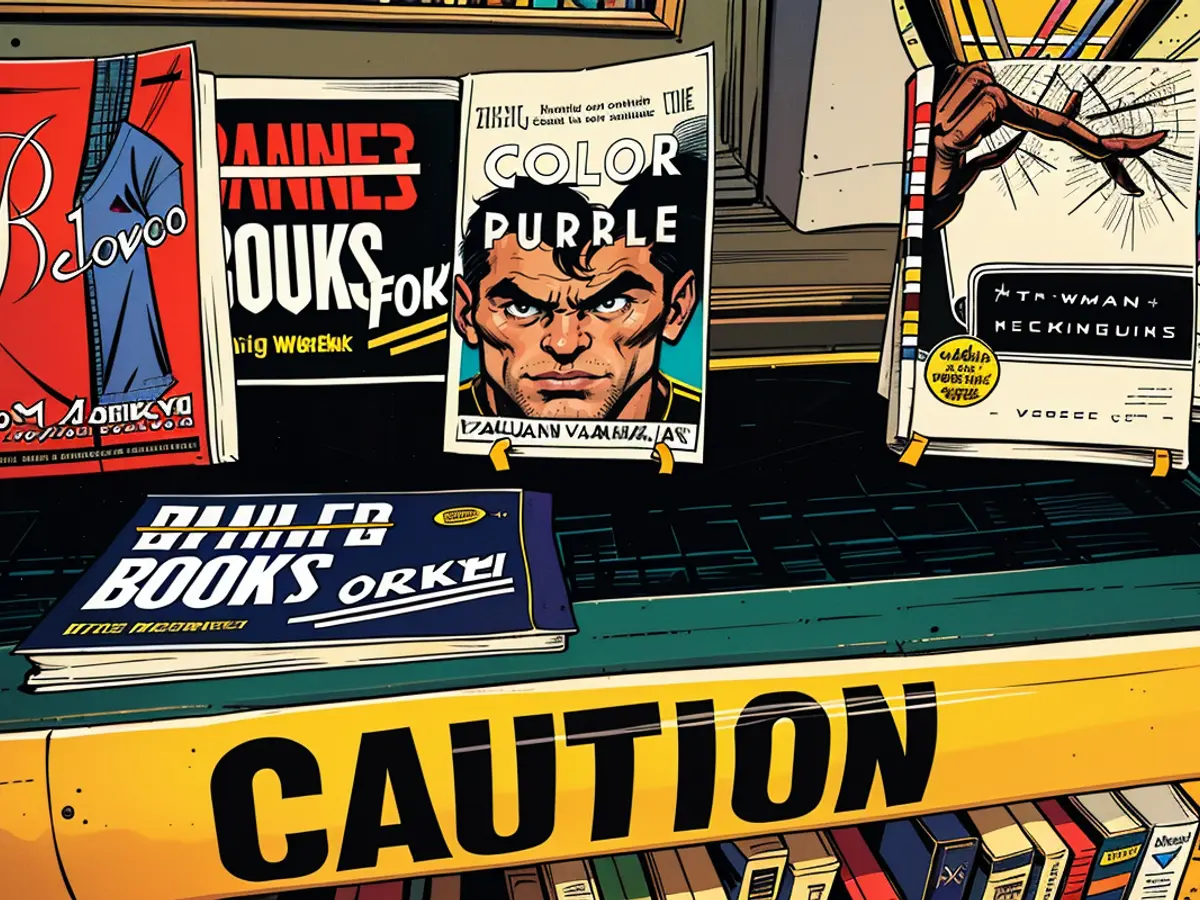States start resisting book bans through their own measures of censorship.
In the month of December, Minnesota joined Illinois and Maryland in implementing regulations to forbid the ban of books from public libraries, including those in K-12 schools and colleges.
Like these other states, Minnesota's law follows endeavors to fight book bans in various school districts across the country, especially in Florida.
Over the course of July 2023 to December 2023, more than 4,300 book bans occurred across 23 states and 52 public school districts, PEN America reported. This organization works to preserve free speech and expression.
While book censorship attempts have persisted over time, the American Library Association stated that the number of books targeted for suppression reached "the highest levels ever documented" by the association last year.
Creating uniformity in Minnesota
The rise in book challenges throughout the United States has mainly been driven by the "parental rights movement" and conservative groups who claim that certain books about race and gender identity are being used to "indoctrinate" children.
These attempts to ban books have been felt in public libraries and school board meetings across multiple states, including Minnesota. In this state, parents, students, and free speech advocates have disputed what materials and books are acceptable in K-12 public schools.
Although only a few books were banned in Minnesota, nearly four dozen books were questioned throughout the state in 2023, the American Library Association's Office of Intellectual Freedom reported.
In Carver County, Minnesota, parents argued over whether "Gender Queer: A Memoir" - a book regularly challenged and the most banned book during a recent 18-month period, according to PEN America - should remain on library shelves.
The Carver County Library Board eventually denied the request to remove the book, as confirmed by CNN affiliate WCCO.
Last month, Minnesota Governor Tim Walz, a Democrat, signed into law a measure prohibiting the removal or banning of a book or other material based solely on its viewpoint or the messages, ideas, or opinions it conveys.
This law permits book challenges to continue, but mandates that trained and licensed librarians be part of the process.
The law also states that none of the restrictions regarding book banning "impairs or limits the rights of a parent, guardian, or an adult" to review or contest books in schools, a provision that Minnesota Democratic state representative Cedrick Frazier, the bill's author, claimed will continue to allow parents to have input on what their children read.
"What we wanted to do was put ... a uniform practice and policy in place so that across the entire state, every school district, every public library, there would be a process for how they would take a look at these challenges if they came up," Frazier told CNN.
"We were intentional about saying that it doesn't take away the rights of parents to have curriculums reviewed with challenged material. That can still be done. We just have a process in place that is uniform and transparent as to how you can do that."
However, some parental rights groups, such as the Minnesota Parents Alliance, have criticized the law. Cristine Trooien, the group's executive director, called it "another disappointing example" of Democrats and teacher unions not "focusing on real issues in K-12 education that have real consequences for Minnesota students and our state."
"Sadly, for students, it's easier for the political left and teachers' unions to use their power, influence, and bottomless resources to saturate the K-12 conversation with straw man issues like 'book banning' than it is to confront and solve the literacy and student achievement crisis," Trooien informed CNN.
Providing legal clarity for librarians and educators
In certain states, like Missouri, librarians can face a fine and imprisonment for distributing books considered "explicit sexual material" or inappropriate in schools.
Minnesota librarians and educators expressed their support for a law that establishes criteria for addressing book challenges in their state. Marie Hydukovich, a middle school and high school librarian for Stillwater Area Public Schools in Minnesota, stated that the new legislation serves as a "security blanket" for her and other librarians.
"I know some media specialists in some districts have been so scared to order very popular books because they don't have a policy or a procedure protecting them or a law protecting them from challenges and they could lose their job over it," Hydukovich said. "I'm hoping that this law protects us a little more from that and we're able to be a little more logical in ordering an appropriate book."
Denise Specht, president of the union Education Minnesota, asserted that the legislation closes loopholes that could enable someone to ban books at the local level through a school board. Specht noted that many educators welcome this as it implies they can focus on teaching and student learning rather than being consumed by book bans.
"The educators who have been at the center of some of these culture wars, in particular the book bans, they didn't get into teaching to be in the middle of a culture war. They wanna teach and they want their students to learn, and they want to learn a complete history and they want their students to see themselves in books," she stated. "Most of them want to see their school boards spending time on figuring out how to support the students and how to support the educators rather than getting into things like this."
Peter Bromberg, an associate director at EveryLibrary, a non-profit organization that backs public and school libraries, shared that they are assisting 87 grassroots initiatives in 34 states and statewide partnerships to counter book bans or prevent them.
According to Bromberg, they are teaming up with coalitions in states like Arkansas, Delaware, Utah, Georgia, Texas, and Florida.
Bromberg explained that the objective is to empower these local groups to carry out crucial tasks in their neighborhoods, such as holding officials responsible, upholding free speech, safeguarding librarians from assaults, maintaining library budgets at optimal levels, and preventing unlawful political intervention in library administration.

Read also:
In this context, here are two sentences that contain the word 'us':
The law in Minnesota permits book challenges to continue, but mandates that trained and licensed librarians be part of the process, ensuring that we have a transparent and uniform process for addressing book challenges in public schools and libraries.
The new legislation serves as a "security blanket" for librarians like me in Minnesota, providing us with clear guidelines and protection against book challenges, allowing us to focus on promoting literacy and providing access to diverse books for all students.








